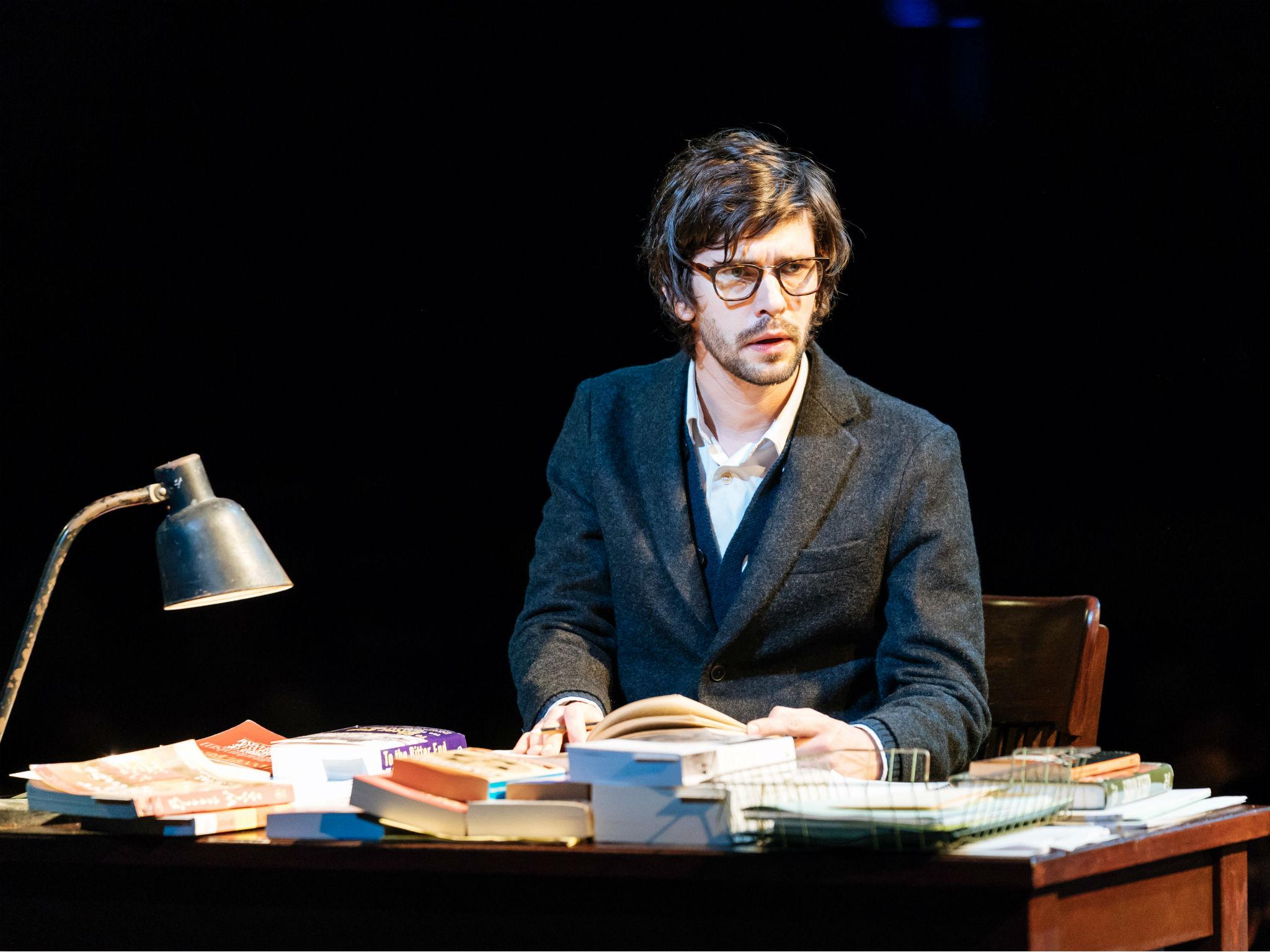Julius Caesar, The Bridge Theatre, London, review: Ben Whishaw is excellent as Brutus
Nicholas Hytner proves again that Shakespeare's plays can be powerfully pertinent for today with this modern-day promenade production of 'Julius Caesar' which stars Whishaw and David Morrissey

This thrilling promenade production of Julius Caesar resoundingly confirms two things. The first is that Nicholas Hytner is the pre-eminent interpreter of Shakespeare in modern dress. Setting his works in the here-and-now, this director has the knack of revealing them, without distortion, to be powerfully pertinent plays for today. He typically began his regime at the National with a trenchant Gulf War Henry V.
The second is the extraordinary spatial flexibility of the Bridge Theatre, the new base that he has created by Tower Bridge. For this in-the-round production, the seats have been taken out of the stalls so that you can choose to be part of the close-packed, shunted-round Roman mob or sit and watch how it is manipulated by cannier operators than the out-of-touch elite who conspired to assassinate Caesar.
The attractions of populism and the failure of dismayed liberals to understand its appeal are potently pervasive in this production. The show doesn’t have to spell out the relevance to such matters as the leave and remain positions in the Brexit referendum. The evening starts off with a pounding rock concert, part of a flag-waving pro-Caesar rally and David Calder’s swaggering, crowd-pleasing Caesar suggests just a hint of a certain American president, who’s given to staging mass exhibitions of his popular support, in the way he throws his baseball cap into the audience. But the chilling reality beneath the fake bonhomie becomes gradually apparent. Hytner lets us see, for example, the grisly backstage fate awaiting the tribunes who dared to tear down his images.
The production gives you an extraordinary sense of the terrifying, almost-farcical panic after the assassination (by bullets here) because the conspirators have not planned what they will do next. And it marks the contrast so acutely between the mentalities of Brutus and Mark Antony that the funeral orations scene is spellbinding. The excellent Ben Whishaw plays Brutus as a bookish academic, happier poring over tomes of revolutionary theory than putting their cogitations (he signs one of his own books for a fan) into practice and increasingly peremptory in rejecting the wiser counsels of his co-conspirators,
It’s one of Brutus disastrous decisions to allow Mark Antony to speak at the funeral. Brutus thinks that he himself can persuade the people by reason and it’s a measure of his failure when a plebeian shouts out “Let him be Caesar” and he starts with intellectual horror at a sentiment that misses his whole point to an absurd degree.
By contrast, coming over like some ageing jack the lad now putting on the pretence of being a plain, blunt man, David Morrissey’s charismatic Mark Antony delivers a masterpiece of populist rhetoric – flattering the mob, resorting to story rather than to logic, appealing to the instincts rather than to reason, stealthily fomenting unrest. Everything is for its effect in the moment. Campaign promises (as with the amount money left for the people in Caesar’s will) can be dishonoured later. Any modern parallels?
The performances are excellent across a large company. Several of the men have been recast as female characters, with Michelle Fairley a wonderfully clear-eyed and passionate Cassius and Adjoa Andoh striking as a drily sarcastic Casca, Bunny Christie’s design is a marvel of rising and falling platforms and the production one of unflagging immediacy as the story shifts from Rome (a great flag of red cloth is passed over the heads of the crowd as Caesar makes his triumphal/fatal entry into Senate) to the the bombardments of later battle scenes which have a loud nerve-shredding intensity (terrific sound design by Paul Arditti) and a fraught atmosphere of futile waste.
An urgent interpretation of the play and its timely challenge to out-of-touch liberal complacency. Strongly recommended.
Until 15 April (bridgetheattre.co.uk); NT Live Broadcast, 22 March
Join our commenting forum
Join thought-provoking conversations, follow other Independent readers and see their replies
Comments
Bookmark popover
Removed from bookmarks